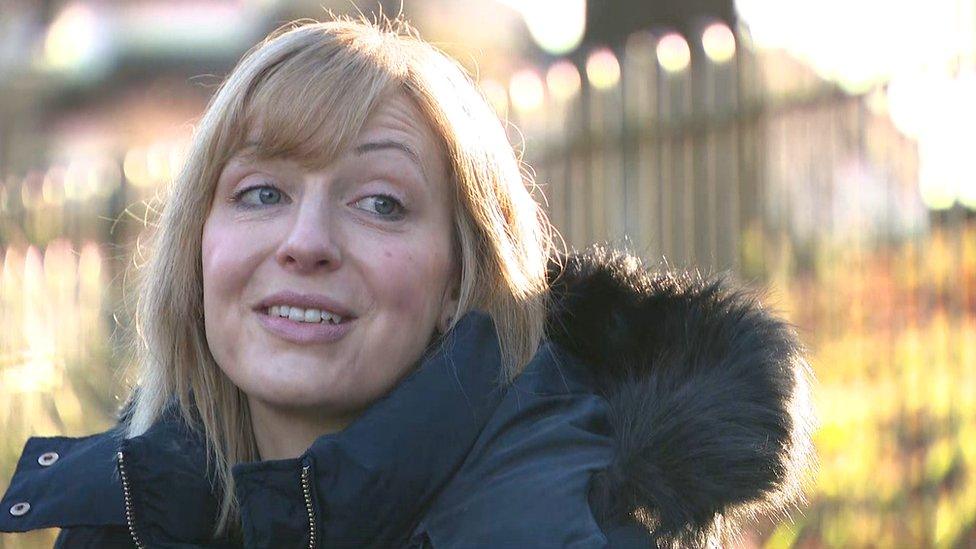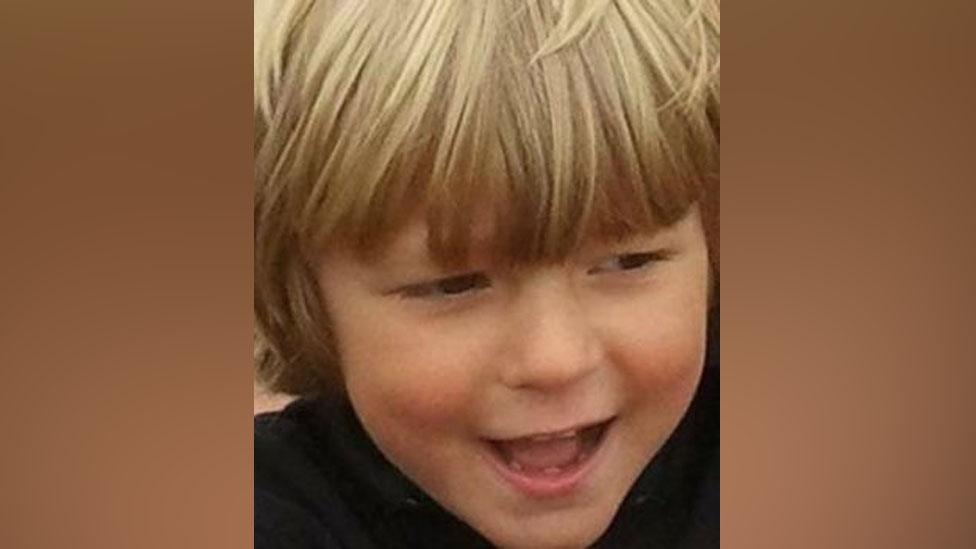Diagnosis warning over alcohol-damaged children
- Published

Scotland needs a long-term plan for helping health professionals identify foetal alcohol spectrum disorder (FASD), a new report has found.
The study found very few are trained to diagnose the condition, which is caused by drinking during pregnancy.
FASD can lead to a range of physical and mental problems in a baby.
But an expert has warned some children who have symptoms are instead being diagnosed with other conditions.
Prof Moira Plant, speaking to BBC Radio's Good Morning Scotland programme, said: "We do not know how many young people there are with foetal alcohol spectrum disorder in Scotland because they are not being identified.
"And if we don't have the numbers what many health professionals will do, for compassionate reasons, is they will diagnoses these children as autistic or as having ADHD because they know there are services in place for these children."
FASD can cause hearing and balance troubles, learning issues, problems developing social skills and impulse control.
Adoption UK estimates that up to one in 20 people, external in Scotland could have the condition.
Prof Plant, author of the Queen's Nursing Institute Scotland report, said that a lot of health professionals say one important indicator was that children have specific facial features.
But she added: "We know only about 10% of children with foetal alcohol spectrum disorder have this specific facial set and therefore 90% of these children go undiagnosed.
"Many parents report health professionals saying to them 'It can't be foetal alcohol spectrum disorder. They don't have the facial features'."
Prof Plant acknowledged the NHS is overwhelmed but added: "The reality is that health professionals are already seeing these children, young people and adults.
"You don't grow out of foetal alcohol spectrum disorder. It is a lifelong condition.
"So these children are already being seen. They are not being diagnosed and therefore the burden on the health service is actually even greater."
'Inattentive, lazy or disruptive'
Prof Plant said affected babies tended to be short in length, light in weight and have smaller heads.
Some also suffer physical harm, such as congenital heart problems and issues with hearing.
Prof Plant added: "One of the features constantly brought up by parents is that these children often don't feel pain as much as other children.
"So, for instance, if they develop an ear infection they may not complain about it."
If undiagnosed, the expert said ear infections could lead to hearing loss and children being described as "inattentive, lazy or disruptive" when they get to school.
However, the stark reality is that they may not be able to hear their teacher.
Prof Plant told the programme children can lead full lives with the condition but they do need support.
She said training was being set up for health professionals, parents and carers, including a dedicated hub at the University of Edinburgh.
But Prof Plant added: "We need a longer-term plan in Scotland.
"Scotland's relationship with alcohol has always been a close and tortured one and this is one of the results."
'If there's a change in routine, it totally throws me'

Carol Hunter spoke about her experience of adoption and foetal alcohol spectrum disorder (FASD) - and how she achieved success
Last month BBC Scotland told the story of Carol Hunter, who says her highly-active mind stems from FASD.
Carol, from Crossgates in Fife, described how if she wasn't cramming her days with activities the result could be far more harmful.
She said: "People think it's a stressful life but it's a way for me not to spend a lot of money or rearrange my house.
"If there's a change in routine, it totally throws me. If an event gets cancelled, I don't feel prepared for what happens next."
Carol, 39, found out about her condition in her late teens when she learned she was adopted.
Her parents, she said, had tried to protect her from the reality of her biological mother's behaviour as well as the stigma surrounding FASD - although the signs of the condition were there as a child.
At school, she struggled with subjects like maths and science and found it difficult to make friends, while her classmates would tease her for being easily led on.
Carol said: "When I found out, it pieced a lot of puzzles together."
Related topics
- Published30 November 2022

- Published20 November 2020

- Published18 June 2019
